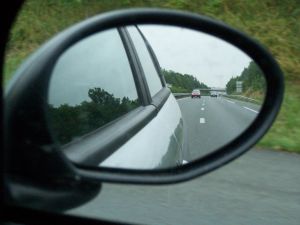One of the greatest challenges police face in getting drunk drivers off the road is finding them. It may be obvious once they’re spotted, but officers can’t be everywhere at once. They often rely on the public to report that a driver is operating recklessly.

But until recently, it was unclear whether police could establish the reasonable suspicion necessary to initiate a traffic stop solely on the basis of anonymous 911 tips. Now, according to the U.S. Supreme Court, they can.
Boston drunk driving accident lawyers have been closely following the case of Navarette v. California since it was first argued before the court in October. The justices have now ruled in a 5-4 split decision that under “appropriate circumstances,” a tip from an unidentified 911 caller can suffice as grounds for stopping a driver.
Ultimately, that’s going to give callers more confidence that their report will be taken seriously and acted upon, which in turn is going to mean more drunk driving arrests and, hopefully, fewer injuries and deaths caused by impaired drivers.
The court has long allowed traffic stops to be conducted on the basis of information culled during 911 calls, but it was questionable whether that extended to anonymous calls.
In this case, out of California, the woman called 911 to report that a truck had run her off the road and had been driving recklessly for several miles. She offered the make, model, license plate number, driver and passenger descriptions and general location.
Officers located the truck, and after following it for five minutes, initiated a stop. As officers approached, they smelled marijuana. A search of the vehicle revealed 30 pounds of marijuana in the bed of the truck.
The driver and passenger filed a motion to suppress on the grounds that the officer lacked reasonable suspicion of criminal activity to initiate the traffic stop. It was true that the officer had followed the truck for five minutes and hadn’t noted any suspicious action.
So the question became whether the 911 call itself established enough reasonable suspicion.
The U.S. Supreme Court underscored that reasonable suspicion considers the totality of the circumstances. Police have to weigh the degree of reliability of information, and that makes anonymous tips risky. However, the court determined that in this case, the information could be considered reliable. For one thing, there was a short period of time between when the call was placed and when the truck was located by police. Plus, the court reasoned that a person providing a false tip probably wouldn’t do so through 911, as it’s well-known that officials use sophisticated tracking systems for handling 911 calls.
The ruling comes at a great time officials in Hingham, where the Patriot Ledger recently reported that the day after the court handed down its findings in Navarette, police stopped a vehicle on George Washington Boulevard on the basis of an anonymous tipster who reported the vehicle had sideswipped her without stopping. Officers found the vehicle, conducted a traffic stop and suspected the driver was drunk. The driver reportedly failed several field sobriety tests before submitting to a blood-alcohol test that found his BAC to be at 0.15 percent – almost twice the legal limit.
If you or someone you love has been injured a Boston drunk driving accident, call for a free and confidential appointment at (617) 777-7777.
Additional Resources:
Justices’ Ruling, Alleged Drunken Driving Case Collide in Hingham, April 22, 2014, By Bruce Wright, Boston Globe
Navarette v. California, April 22, 2014, U.S. Supreme Court
More Blog Entries:
MA Man Convicted of Drunk Driving for 6th Time, April 21, 2014, Boston Drunk Driving Accident Lawyer Blog
 Boston Drunk Driving Accident Lawyer Blog
Boston Drunk Driving Accident Lawyer Blog

